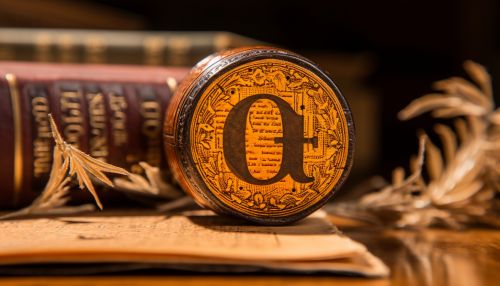Q without U
Introduction
In the English language, the letter "Q" is almost always followed by the letter "U". This linguistic phenomenon is known as a digraph, a pair of characters used to write one phoneme or a sequence of phonemes that does not correspond to the written letters in sequence. However, there are a few exceptions to this rule, where "Q" appears without a "U". This article will explore these rare instances, their origins, and their implications in the study of English orthography and phonology.


Origins of the "Q" and "U" Digraph
The "Q" and "U" digraph has its roots in the history of the English language. The English language is a Germanic language, but it has been influenced by many other languages over the centuries. One of the most significant influences was Latin, from which English borrowed a significant number of words. In Latin, "Q" was always followed by "U", and this rule was carried over into English. The "Q" and "U" digraph represents the /kw/ sound in English, as in the words "queen" and "quick".
Exceptions to the Rule
While the "Q" and "U" digraph is a standard rule in English, there are a few exceptions. These exceptions can be grouped into several categories: loanwords from other languages, words of foreign origin that have been anglicized, and words that have been coined or created in English.
Loanwords
A significant number of the words in which "Q" appears without a "U" are loanwords from other languages. These words have been borrowed directly from another language and have retained their original spelling. For example, the word "Qibla", which is the direction that should be faced when a Muslim prays, is a loanword from Arabic. Similarly, "Qigong", a system of coordinated body-posture and movement, breathing, and meditation used for health, spirituality, and martial arts training, is a loanword from Chinese.
Anglicized Words
Another category of words where "Q" appears without a "U" are words of foreign origin that have been anglicized. These words have been adapted to the spelling conventions of English, but the "Q" without a "U" has been retained. An example of this is the word "Qintar", which is an Albanian monetary unit. The original word in Albanian is "Qindarkë", but it has been anglicized to "Qintar".
Coined Words
The final category of words where "Q" appears without a "U" are words that have been coined or created in English. These words are often created for specific purposes, such as brand names or to represent specific concepts. An example of this is the word "Qwerty", which is used to describe the standard layout of keys on a keyboard.
Implications in Linguistics
The exceptions to the "Q" without "U" rule in English have several implications in the study of linguistics. They provide insights into the history and evolution of the English language, as well as the influence of other languages on English. They also highlight the flexibility and adaptability of English spelling conventions, and the ongoing process of change and adaptation in the language.
